-
- PCB TYPE
- PRINTED CIRCUIT BOARD PROTOTYPE ALUMINUM PRINTED CIRCUIT BOARD R&F PCB FPC HIGH FREQUENCY PCB HIGH-TG PCB HEAVY COPPER PCB HDI PCB PCB FOR LIGHTING METAL CORE PCB
time:Jul 15. 2025, 09:25:50
As a trailblazer in aluminum-based copper clad laminate (CCL) production, Boyu has redefined industry standards through a unique blend of material innovation, application-focused engineering, and global collaboration. With a focus on solving complex challenges in thermal management and high-frequency performance, Boyu’s aluminum CCLs have become integral to advancements in electronics across automotive, renewable energy, and next-gen communication sectors. This article explores Boyu’s technical differentiators, collaborative design approaches, emerging market strategies, and vision for sustainable material innovation.
Technical Differentiators in Aluminum CCL Engineering
Proprietary Dielectric Formulations
Boyu’s R&D team has developed dielectric systems that address critical industry pain points:
Ultra-Low Loss Composites: A new family of dielectrics with dielectric loss (Df) below 0.002 at 10 GHz, optimized for 5G mmWave antennas and satellite communication modules. These materials minimize signal attenuation, enabling longer-range, higher-data-rate transmissions.
Thermo-Mechanically Tuned Layers: Dielectrics engineered to match the coefficient of thermal expansion (CTE) of aluminum alloys (6xxx series) and copper, reducing interfacial stress during thermal cycling. This innovation has cut delamination rates by 40% in automotive under-hood applications.
Hydrophobic Additives: Ceramic-reinforced dielectrics with nano-scale water-repellent particles, ensuring stable performance in humid environments—critical for outdoor LED fixtures and marine electronics.
These formulations are not off-the-shelf solutions but are co-developed with clients to meet specific application thresholds, from temperature extremes to mechanical stress profiles.
Precision Lamination and Bonding Technologies
Boyu’s manufacturing prowess lies in processes that ensure consistent material interaction:
Plasma-Activated Bonding: A proprietary pre-treatment process that modifies the surface energy of aluminum cores and dielectric layers, enhancing adhesion without reliance on traditional adhesives. This results in 30% higher bond strength, critical for flexible CCLs used in wearable tech.
Multi-Layer Co-Curing: Synchronized curing of aluminum, dielectric, and copper layers under variable pressure profiles, eliminating air entrapment in high-density laminates for power electronics.
Adaptive Roll-to-Roll Processing: For high-volume production (e.g., consumer electronics CCLs), adjustable tension controls prevent material warpage, ensuring uniform thickness across large-format panels.
These technologies enable Boyu to produce CCLs with tight tolerances, even for custom sizes and complex geometries.
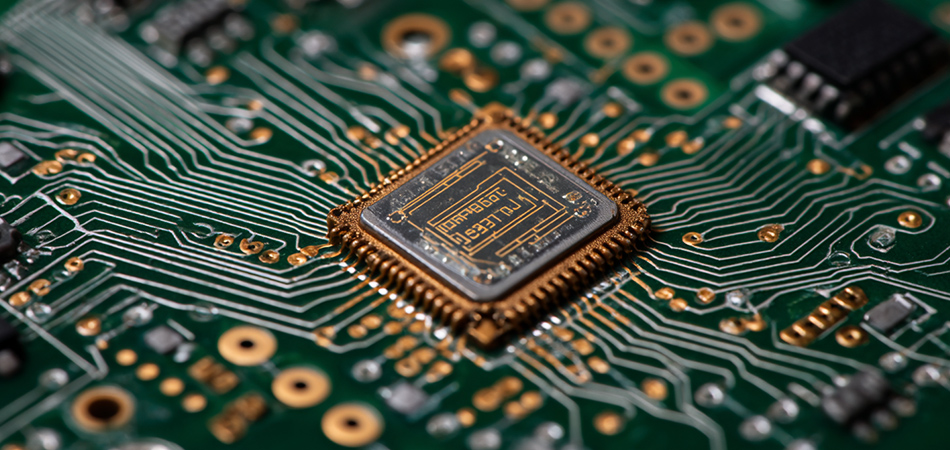
Collaborative Design: Partnering for Application Excellence
Co-Development with Tier-1 Automotive Suppliers
Boyu’s collaboration with leading automotive OEMs has yielded breakthroughs in ADAS (Advanced Driver-Assistance Systems) components:
Radar-optimized CCLs: A custom laminate with a 0.1mm thin dielectric layer and low-loss copper, designed to reduce signal interference in 77GHz radar modules. This solution improved detection range accuracy by 15% in real-world testing.
Thermal-Shock Resistant Layers: For EV battery management systems, Boyu developed CCLs that withstand -40°C to +125°C thermal cycles without performance degradation, validated through 5,000+ cycle testing per IEC 60068 standards.
These partnerships highlight Boyu’s ability to translate automotive requirements into material solutions, accelerating time-to-market for safety-critical systems.
Renewable Energy Sector Collaborations
In solar and wind energy applications, Boyu’s CCLs address unique environmental challenges:
UV-Stabilized Laminates: For solar inverter PCBs, aluminum cores with anti-UV coatings and dielectric layers resistant to yellowing ensure 25+ year lifespan in direct sunlight—matching the durability of solar panels themselves.
High-Current Conductive Paths: Thick-copper aluminum CCLs (up to 4oz) with optimized trace geometry, enabling efficient power distribution in wind turbine converters while minimizing resistive losses.
By working closely with renewable energy integrators, Boyu ensures its CCLs align with the sector’s demand for long-term reliability and energy efficiency.
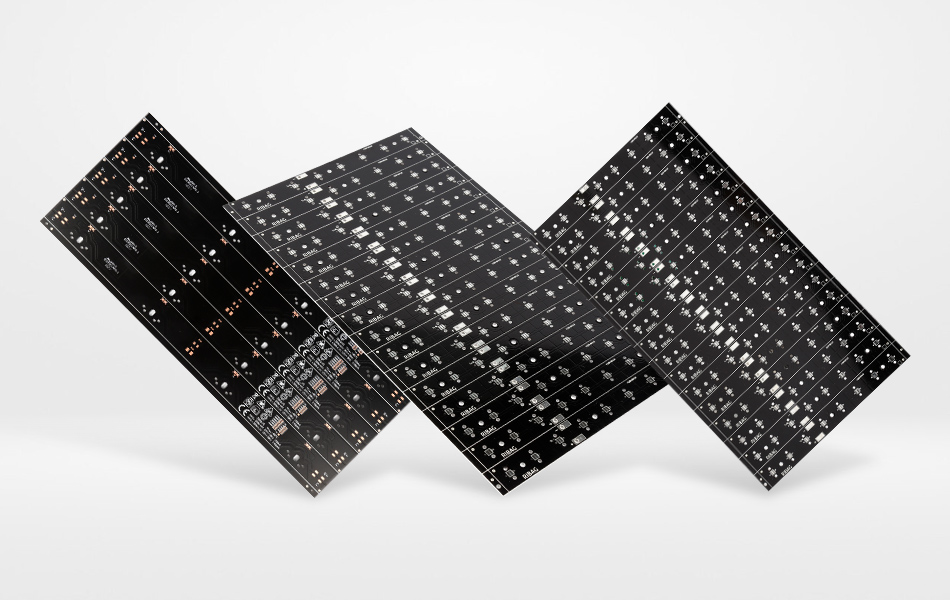
Emerging Applications: Beyond Traditional Electronics
Hydrogen Energy Infrastructure
Boyu is pioneering aluminum CCLs for hydrogen fuel cell systems:
Corrosion-Resistant Cores: Aluminum alloys treated with specialized anodization to resist hydrogen embrittlement, paired with fluoropolymer dielectrics that withstand exposure to humid H₂ environments.
High-Power Density Layers: CCLs with enhanced current-carrying capacity to manage the high voltages in hydrogen electrolyzers, supporting the transition to green hydrogen production.
Quantum Computing Hardware
In collaboration with research institutions, Boyu is developing CCLs for quantum processors:
Low-Magnetic-Profile Materials: Aluminum cores with reduced ferromagnetic impurities, minimizing interference with quantum qubit coherence.
Cryogenic Stability: Dielectrics tested to perform at 4K (-269°C), ensuring structural integrity in the extreme cold of quantum cooling systems.
These applications position Boyu at the forefront of materials enabling next-gen computing technologies.
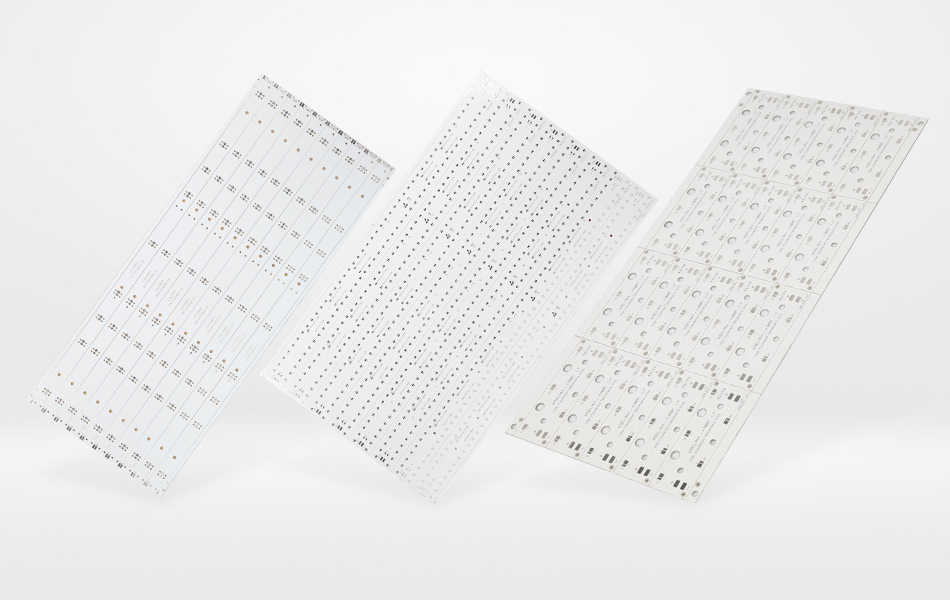
Sustainability: From Production to Product Lifecycle
Circular Material Systems
Boyu’s commitment to sustainability extends beyond manufacturing to end-of-life management:
Closed-Loop CCL Recycling: A proprietary process to separate aluminum, copper, and dielectric layers from used CCLs, with 95% of recovered aluminum reused in new core production. This initiative has diverted 500+ tons of e-waste from landfills annually.
Bio-Based Dielectric Precursors: Partnerships with biotech firms to develop epoxy resins derived from plant-based feedstocks, reducing reliance on petroleum while maintaining thermal performance.
Energy-Neutral Manufacturing
Boyu’s flagship facility in China operates on a net-zero energy model:
Solar-Powered Production: Rooftop solar arrays generate 60% of the facility’s electricity needs, with battery storage for consistent supply.
Waste Heat Recovery: Systems capture excess heat from lamination presses, using it to warm process water and reduce natural gas consumption.
These efforts have reduced the company’s carbon footprint per unit of CCL by 45% since 2020.
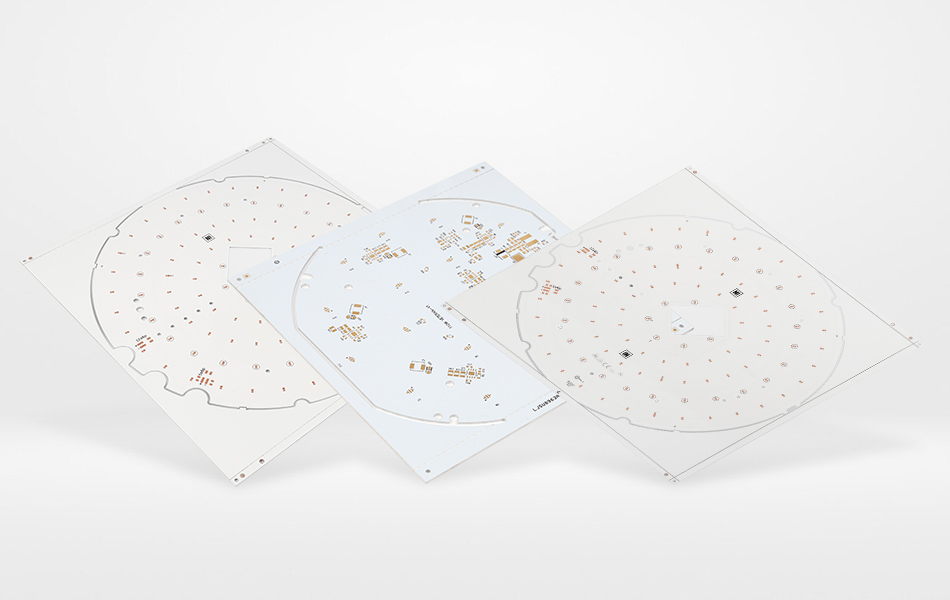
Global Market Strategy: Local Expertise, Global Reach
Regional Technical Centers
To better serve regional markets, Boyu has established application labs in key hubs:
Europe (Germany): Focused on automotive and industrial CCL solutions, with engineers specializing in IATF 16949 compliance and ADAS-specific material testing.
North America (USA): Concentrating on 5G infrastructure and aerospace applications, collaborating with defense contractors on radiation-hardened CCLs.
Asia (Singapore): Catering to consumer electronics and IoT sectors, with rapid prototyping capabilities for flexible and ultra-thin aluminum CCLs.
Each center combines global technical standards with local market insights, ensuring tailored solutions for regional needs.
Supply Chain Resilience
Boyu has built a diversified supply chain to mitigate risks:
Dual-Source Material Partnerships: Qualified multiple suppliers for critical inputs like high-purity aluminum and specialty copper foils, ensuring continuity during disruptions.
Regionalized Production: Small-batch production facilities in Mexico and Malaysia complement large-scale plants in China, reducing lead times for North American and Southeast Asian clients.
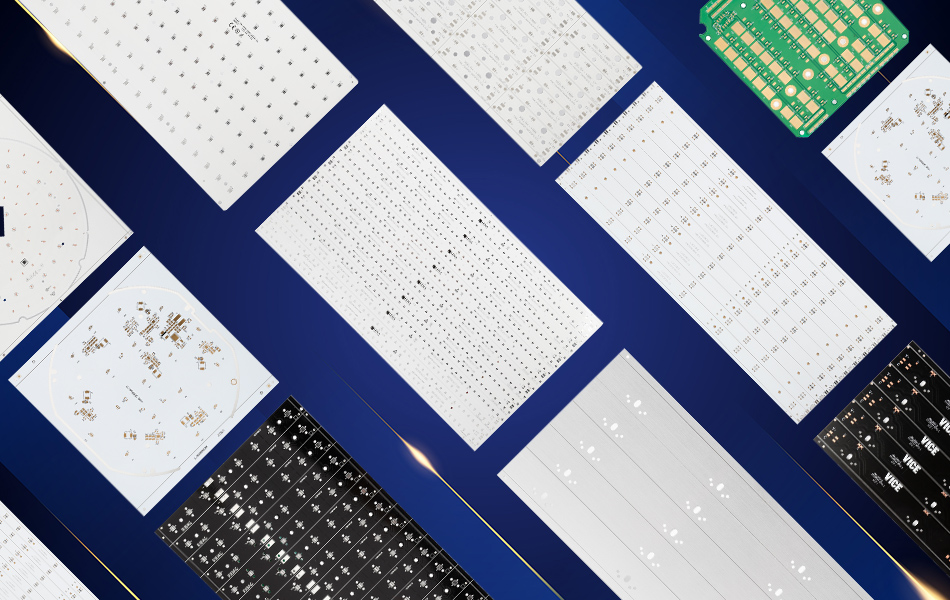
Future Roadmap: Innovations on the Horizon
Next-Gen Material Platforms
Boyu’s R&D pipeline includes transformative technologies:
Graphene-Enhanced Aluminum Cores: Integrating graphene nanoplates into aluminum alloys to boost thermal conductivity by 25% while maintaining lightweight properties—targeting EV fast-charging systems.
Self-Monitoring CCLs: Embedded micro-sensors that wirelessly transmit data on temperature, strain, and humidity in real time, enabling predictive maintenance in critical applications like power grids.
Digitalization of CCL Design
Boyu is developing an AI-driven design platform that:
Analyzes client application requirements (power, frequency, environment) to recommend optimal CCL configurations.
Simulates thermal and electrical performance using machine learning models trained on thousands of test cases.
Generates production-ready specifications, reducing design cycles from weeks to days.
Conclusion
Boyu Aluminum CCL Manufacturer continues to set benchmarks in the electronics materials sector by prioritizing innovation that solves real-world challenges. Through technical excellence in dielectric and alloy engineering, collaborative partnerships with clients, and a steadfast commitment to sustainability, Boyu is not just manufacturing CCLs but enabling the technologies that will shape the future—from smarter vehicles to cleaner energy systems. As electronics grow more complex and demanding, Boyu’s focus on application-specific solutions ensures it remains an indispensable partner in the global electronics ecosystem.

Got project ready to assembly? Contact us: info@apollopcb.com



We're not around but we still want to hear from you! Leave us a note:

Leave Message to APOLLOPCB
